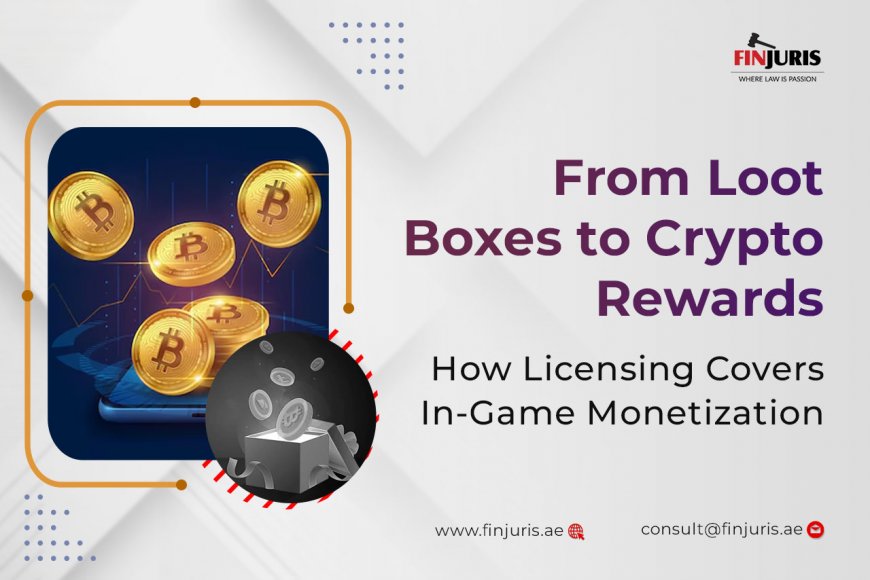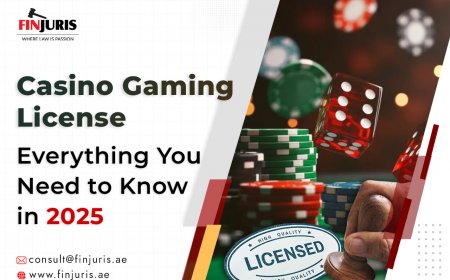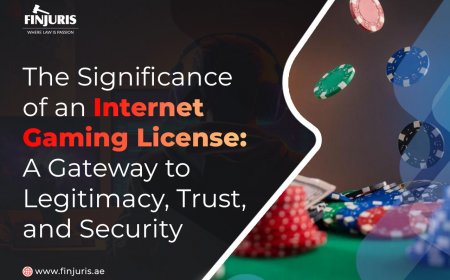From Loot Boxes to Crypto Rewards: How Licensing Covers In-Game Monetization
Learn how game licensing tackles in-game monetization, from loot boxes to crypto rewards, while staying compliant and secure.

In the rapidly evolving world of video games, monetization strategies have transformed from simple one-time purchases to intricate webs of microtransactions, loot boxes, in-game currencies, and crypto rewards. While these revenue models have opened up exciting new avenues for developers, they have also attracted growing scrutiny from regulators across the globe. At the heart of this regulatory landscape is a term that gaming companies must now take seriously: the commercial gaming license.
A commercial gaming license is more than a legal formality; it is a gateway to legitimacy, sustainability, and market access. As the boundaries between gaming, gambling, and finance continue to blur, understanding how this license applies to in-game monetization models is essential for developers, publishers, and platform operators.
The Rise of In-Game Monetization
Over the past decade, monetization in gaming has evolved dramatically. Instead of relying solely on the upfront cost of purchasing a game, developers now generate revenue through:
- Loot Boxes: Digital containers with randomized rewards that players can purchase.
- Battle Passes: Time-limited progression systems offering exclusive rewards.
- Microtransactions: Small in-game purchases for skins, characters, or power-ups.
- Virtual Currencies: In-game money that can be bought with real money.
- NFTs and Crypto Rewards: Blockchain-based assets with real-world value.
These innovations have created entire in-game economies, driving player engagement and fueling substantial profits. However, they also present legal gray areas—especially when real money is involved and the outcomes are randomized or tradable.
Loot Boxes and the Gambling Debate
Loot boxes are perhaps the most controversial monetization model. Players often spend real money for a chance at randomized in-game items, which raises comparisons to gambling. Some regulators, such as those in Belgium and the Netherlands, have outright banned loot boxes, arguing they violate gambling laws.
Where commercial gaming licenses come into play is in jurisdictions where loot boxes are regulated but not banned. To offer them legally, developers may be required to:
- Disclose drop rates.
- Ensure players cannot cash out rewards.
- Prohibit sales of loot box items on third-party marketplaces.
Without a commercial gaming license, developers risk enforcement actions, app store removals, and reputational damage. Even in countries where loot boxes aren't yet tightly regulated, operating without a license can be risky if the game targets global users.
NFTs and Crypto in Gaming: The New Frontier
The integration of non-fungible tokens (NFTs) and cryptocurrencies into games represents the next frontier of in-game monetization—and regulation. Many games now offer players the chance to earn or buy NFTs that can be traded on blockchain marketplaces for real-world value.
This raises several critical legal questions:
- Are these games facilitating financial transactions?
- Are players investing with the expectation of profit?
- Is the game functioning as a virtual asset trading platform?
In some jurisdictions, especially those with Virtual Asset Regulatory Authorities (like Dubai's VARA), these functions may trigger the need for a commercial gaming license under virtual asset service provider rules. Licensing may require robust anti-money laundering (AML) procedures, user verification (KYC), financial disclosures, and consumer protections.
The Blurred Line Between Gaming and Gambling
Crypto rewards and tradable digital assets bring video games closer to the gambling industry, whether intentionally or not. For example:
- A game that allows users to wager tokens to win more tokens may be regulated as gambling.
- A game that sells NFTs which can gain or lose value based on gameplay could be seen as speculative.
- A play-to-earn model where players invest upfront to generate returns may resemble an investment scheme.
All of these models introduce regulatory uncertainty. Without a commercial gaming license—or worse, without understanding if one is required—developers expose themselves to potential bans, fines, or forced shutdowns.
What a Commercial Gaming License Covers
A commercial gaming license is designed to regulate games that involve:
- Real-money transactions
- Randomized rewards (with monetary or resale value)
- Tradable virtual assets
- User-to-user marketplaces
- Blockchain integration
- Play-to-earn mechanics
Depending on the jurisdiction, obtaining a license typically involves:
- Submitting detailed business and technical documentation.
- Disclosing monetization methods and user flows.
- Proving compliance with consumer protection laws.
- Demonstrating AML/KYC procedures.
- Undergoing audits or licensing reviews.
While the process can be complex and costly, the benefits include legal certainty, broader payment gateway access, investor confidence, and listing opportunities on mainstream app stores.
Why Compliance Is No Longer Optional
In the early days of gaming monetization, developers could operate under the radar. Today, regulators are watching closely—especially as gaming becomes intertwined with fintech and decentralized finance (DeFi).
Several trends have made compliance with commercial gaming license frameworks non-negotiable:
- Cross-border game launches expose companies to multiple regulatory regimes.
- App stores (like Google Play and Apple) require compliance disclosures.
- Payment processors and banks often ask for licensing proof.
- Institutional investors won’t back unlicensed or non-compliant projects.
Case Studies: Licensing in Action
- Axie Infinity, a blockchain-based play-to-earn game, faced pressure from regulators over its tokenomics. The company has since explored licensing models in Asia and the Middle East.
- EA faced multiple investigations into its FIFA loot boxes and had to adjust how they were presented to comply with gambling laws in several countries.
- Ubisoft’s Quartz platform, which introduced NFTs in its games, drew criticism and regulatory questions over whether it was facilitating speculative trading.
Each of these cases highlights the growing need for gaming companies to integrate licensing strategy early in their monetization roadmap.
Final Thoughts
Monetization is the lifeblood of modern games—but it must be handled with care. As financial mechanics increasingly permeate gameplay, the legal environment will only grow more complex. Developers must go beyond great game design to understand how regulatory frameworks apply to their business model.
A commercial gaming license isn’t just about staying compliant—it’s about staying operational, competitive, and trusted. Whether your game uses loot boxes, crypto rewards, NFTs, or a hybrid model, make licensing part of your launch strategy—not an afterthought.
Because in today’s market, the real game is knowing the rules and being compliant at all times. If you slip in the arena of compliance, you’ll lose the game.
What's Your Reaction?




















